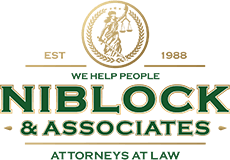Bankruptcy Definitions & Terms
-
AssetAnything that has any value that you can sell or trade and get money for it.
-
Automatic StayA Bankruptcy rule that prohibits creditors from attempting to collect a debt from a debtor whether it be by repossession, foreclosure, sending bills, phone calls demanding payment.
-
GarnishTo take, by legal process, money in the hands of someone, other than the debtor, and give it to a creditor. In order to garnish something, a creditor must first file a lawsuit against the debtor, obtain a judgment in Court, file a garnishment and serve it on, usually a bank or the employer of the debtor, and the bank/employer will hold money out of debtor’s account/pay check and send it to the creditor.
-
CollateralAny item of property used to secure a loan. In other words, it’s the property a debtor would lose (by repossession or foreclosure) if payments on the debt are not made.
-
IncomeAny money received, whether it be from working, government benefits, child support, tax refund, the receipt of personal injury settlement, etc.
-
Confirmation of PlanThe process that a plan of repayment goes through to make sure it meets all the requirements of the Bankruptcy rules, once it does, it will be approved by the Court.
-
Meeting of CreditorsA meeting that every debtor is required to attend where the Trustee and any creditor, may ask the debtor questions while under oath. Usually, it is held within thirty, (30) to forty, (45) five days from the date of filing Bankruptcy. The meeting usually lasts about five (5)minutes.
-
CreditorA person or business to whom a debtor owes money.
-
Plan of RepaymentThe document, in a Chapter 13, that tells everyone how a Debtor’s debts will be handled. Probably the heart of a Chapter 13 case.
-
DebtAny obligation to pay money or perform services to/for another person or business.
-
Priority DebtA non-dischargeable debt usually in the form of child support, alimony, criminal fines, hot checks, restitution and taxes. This type of debt will not be discharged in a Chapter 7 and will be owed after the case is over. In a Chapter 13, priority debts are paid through the Plan of Repayment, with some exceptions.
-
DebtorAny person who owes money to another person or business (a creditor).
-
PropertyAnything that can be converted into money.
-
DischargeForgiveness of debt. After receiving a discharge, a debtor does not legally owe the debt and a creditor cannot demand payment.
-
Re-affirmationOnly applies in a Chapter 7. When the debtor and creditor enters into an re-affirmation agreement, the debtor agrees to pay the debt to the secured creditor in order to keep the secured property. If in the future, the debtor does not pay the debt for whatever reason, the creditor will be able to repo the secured property, sue the debtor, obtain judgment and collect from debtor, even though debtor filed Bankruptcy.
-
EquityThe difference between how much is owed on secured property and the value of secured property. For example, a car worth $4,000 that you owe $3,000 on has $ 1,000 of equity in it.
-
RepossessWhen a secured creditor takes the collateral that secures the debt owed. For example, the repo man takes the vehicle, because debtor is behind on payments.
-
ExemptionA Bankruptcy rule that protects a certain item of property from the Chapter 7 Trustee’s ability to take and sell it. Also it keeps the Chapter 13 Trustee from requiring a debtor to pay the equity in the property into a Plan of Reorganization.
-
Retail ValueWhat you would have to pay to buy property.
-
ExpensesAny cost necessary to run a household, such as utilities, insurance, food, clothing, shelter.
-
Secured DebtAny debt that if debtor did not pay, the creditor could repossess some property that was put up as collateral.
-
FeasibilityThe ability to make plan payments to the Chapter 13 Trustee after debtor pays his monthly expenses.
-
Secured PropertyProperty of any kind where a creditor can repossess it if the debtor doesn’t make payments as agreed. Example would be a home mortgage or vehicle loan.
-
SurrenderTo let secured property, that serves as collateral for a debt due a secured creditor, go back to the secured creditor. If debtor surrenders property back to a creditor, debtor will not pay any money to the secured creditor, in most cases, if filing Bankruptcy.
-
TransferTo sell, trade, or give any property to another person or business.
-
TrusteeThe person appointed to oversee a Bankruptcy case.
-
Chapter 7 TrusteeThe job of a Chapter 7 Trustee is to determine whether the debtor has non-exempt property that he can take and sell to pay towards the debtor’s debts. If there are no assets, the Trustee will declare the case to be a “no asset case”.
-
Chapter 13 TrusteeThe job of a Chapter 13 Trustee is to review the debtor’s Bankruptcy petition and plan of repayment and make sure they meet all the Bankruptcy rules. This Trustee collects the plan payments from debtor and after the Plan of Repayment is confirmed, will pay the money to creditors in accordance with the Plan of Repayment.
-
Unsecured DebtAny bill that doesn’t have any secured property to go along with it. In other words, if you didn’t pay, there is no property for the repo man to take. Common examples are credit card debts, medical bills, open accounts and signature loans.
-
ValueWhat you could actually sell an item of property for.

